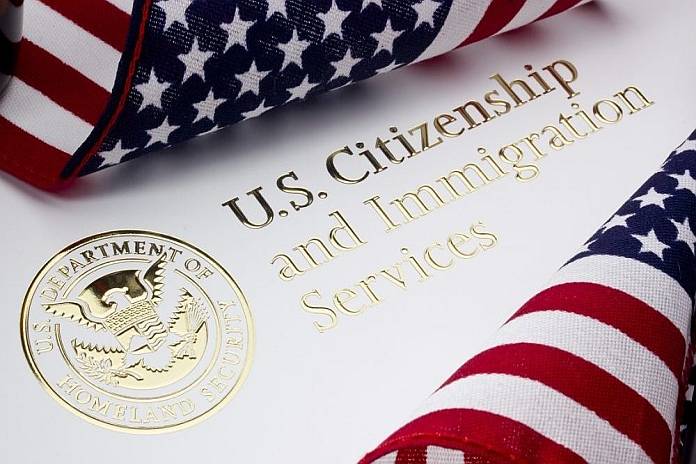WASHINGTON — Acting Homeland Secretary Kevin McAleenan said that at least 42,000 Caribbean nationals from across the region overstayed their non-immigrant visas and stayed in the United States between October 2017 and September 2018. This figure is contained in the U.S. Department of Homeland Security’s (DSH) fiscal year 2018 entry-exit overstay report.
The federal government has provided figures to show that overall, in the wider Caribbean Community (CARICOM countries, Trinidad and Tobago has the lowest over-stay rate with the United States at 0.40 percent, followed by The Bahamas (0.475), Barbados (1.11 percent), St. Kitts and Nevis (1.73 percent), St. Lucia (1.86 percent) and Belize (1.93 percent).
Haiti, Guyana and Jamaica were the countries in CARICOM with the highest over-stay rate in the United States. The country with the highest rate in the Caribbean was Venezuela with 7.31 percent of its citizens over-staying their time in the United States while Cuba had a relatively small figure of 2.29 percent.
According to the report, 239 Grenadians overstayed their non-immigrant tourism/business B1/B2 visas that were granted to enter the country between October 1, 2017, and September 30, 2018. A total of 11, 032 Grenadians were granted entry to the United States during the period under review and were expected to leave after the time given to them to remain in the country. The report also indicated that it has no departure records for 219 Grenadians, now classified as suspected in-country overstays.
A total of 20 Grenadians were recorded as leaving the United States after their authorised period of admission expired. This is classified as out-of-country overstays, according to the report. The US Homeland Security has given Grenada a suspected 2.17 percent overstay rate and a suspected in-country overstay rate of 1.99 percent.
The over-stay figure for the Spice Isle is the second highest in the sub-regional Organization of Eastern Caribbean States (OECS), which is just below that of St. Vincent and the Grenadines at 2.79 percent. The lowest is Antigua and Barbuda at 1.39 percent.
The top ten countries in the region with the most U.S. visa over-stays for the last fiscal year are:
1.) Dominican Republic – 14,641
2.) Jamaica – 10,626
3.) Haiti – 6,917
4.) Guyana – 3,220
5.) Cuba – 1,868
6.) The Bahamas – 1,545
7.) Trinidad and Tobago – 811
8.) Barbados – 757
9.) Belize – 603
10.) Saint Lucia – 318
Overall, the DHS stated that there were 666,582 overstays from around the world. The report also outlines that DHS and Customs and Border Protection (CBP) are working towards biometric exit technology implemented to cover more than 97 percent of departing commercial air travellers within the next four years.
As of September 2018, 15 US airports were utilising facial-recognition technology to verify visitors as they exit the country. The pictures are matched to existing images from passport applications, visa applications or interactions with agents at prior border locations to identify the traveller and enable CBP to determine whether the traveller has complied with terms of admission or if they have overstayed.
At present, CBP has utilised facial recognition on more than two million passengers on over 15,000 flights and has verified 7,000 of those visitors who have over stayed their visas. Without the facial-recognition system, this kind of check is done with biographic manifest data, such as name and passport number.
According to DHS, the biometric system has a match rate of 98 percent. Due to this success, CBP has received, “Many commitment letters from airport authorities and/or air carriers supporting biometric exit operations.” CBP is also conducting testing to identify passengers crossing borders in vehicles utilising facial-recognition technology.”
In related news Representative Eliot Engel, chairman of the House Committee on Foreign Affairs, issued a statement regarding reports that the Department of State is denying American citizenship to certain children of American citizens abroad:
“I’m outraged by the State Department’s denial of U.S. citizenship to some children of American citizens born abroad, primarily those of same-sex couples and those who have sought medical assistance to conceive children. This is unconscionable. It may also be illegal. A federal judge recently ruled that the State Department’s imposition of a biological requirement is a ‘strained interpretation’ of existing law. I call on the State Department to immediately end this shameful discrimination and treat all families with dignity and equality.”
https://www.dhs.gov/sites/default/files/publications/19_0417_fy18-entry-and-exit-overstay-report.pdf

